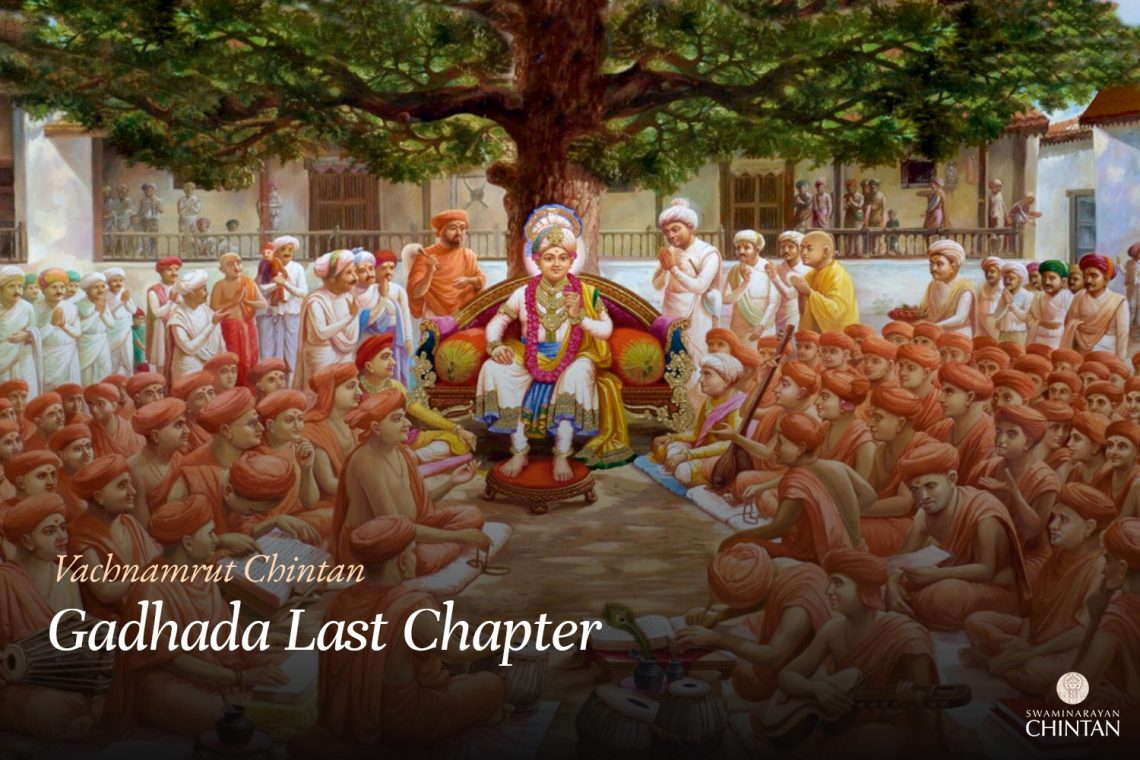Central Insights:
- The Miraculous Account of Bharatji.
Key Points:
- For a devotee of God, fostering affection for anything other than God is considered a grave sin.
- Reflecting on this account, one must strive to maintain uninterrupted focus on God.
Explanation:
This Vachanamrut highlights the miraculous account of Bharatji. Shreeji Maharaj states that no story in the Shrimad Bhagwat is as extraordinary as that of Bharatji. The sense of “miraculous” here pertains to the profound and transformative lessons this account offers to mumukshus (seekers of liberation). The teachings drawn from this account are unparalleled, as they provide invaluable insights that cannot be found in other narratives.
Despite being the son of Rushabhdev Bhagwan, Bharatji developed affection for a baby deer, which led to his next birth as a deer. This account contains numerous profound elements rarely encountered in the lives of ordinary seekers. Yet, despite all these exceptional virtues, Bharatji could not escape the cycle of birth and death. Not only was he reincarnated, but he also descended to an animal form, demonstrating that even extraordinary qualities cannot safeguard against such consequences without vigilance.
It is miraculous that even though his father was a manifestation of Bhagwan, Bharatji still had to endure the consequences of his actions. He was a ruler of the entire earth and renounced his empire with immense vairagya (detachment). Yet, a moment of attachment to the deer disrupted his spiritual progress. This teaches ordinary seekers the necessity of extreme caution. Furthermore, Bharatji performed uninterrupted worship of God in the forest, to the extent that he forgot bodily needs like hunger and thirst. We, as seekers, often fail to achieve such dedicated worship. Occasionally, seekers renounce with intensity but then divert themselves to worldly affairs, making them vulnerable to obstacles.
When Bharatji showed compassion for the deer, his act was not inherently condemnable. In fact, a devotee’s heart should be tender and compassionate like God’s. However, in Bharatji’s case, this compassion transformed into maya (illusion). Even virtues can become impediments when misaligned with spiritual focus, which is why seekers must remain cautious. Although compassion is not a vice, for Bharatji, it became a cause of spiritual downfall.
This account contains numerous lessons for seekers to internalize. Shreeji Maharaj emphasizes that fostering affection for anything other than God is a significant sin and grave mistake. Only through constant vigilance can one overcome such tendencies. Otherwise, even great devotees like Bharatji were entangled and had to face rebirth. Ordinary seekers, lacking the exceptional qualities of Bharatji, must take extra precautions. Following Shreeji Maharaj’s guidance and exercising utmost vigilance are the only ways to ensure liberation.
Glossary
| Bharatji – Emperor and the eldest son of Bhagwan Rushabhdev Renowned for his intense vairagya (detachment) yet also known for his downfall due to attachment to a deer, leading to his rebirth as a deer. In his next birth, he was known as Jadbharat, where he lived as a spiritually enlightened yet outwardly silent and detached being. His teachings on self-realization and detachment to King Rahugan are recorded in the Shrimad Bhagavatam, and he ultimately attained moksh (liberation). |
| Rushabhdev Bhagwan – The first Tirthankar of Jainism and an incarnation of Bhagwan Vishnu He was a divine king and spiritual teacher who established the principles of dharma. As the father of Bharatji, he ruled with righteousness before renouncing the world for ascetic life. He is revered for propagating non-attachment, self-discipline, and spiritual enlightenment, leading many towards liberation (moksh). His teachings are significant in both Jain and Hindu traditions. |
| Mumukshu – Seeker of liberation (Moksha) |
| Vairagya – Detachment From Everything Except God |
| Maya – Illusion The material energy that entangles the Jeev in worldly existence and distracts from Bhagwan. |

